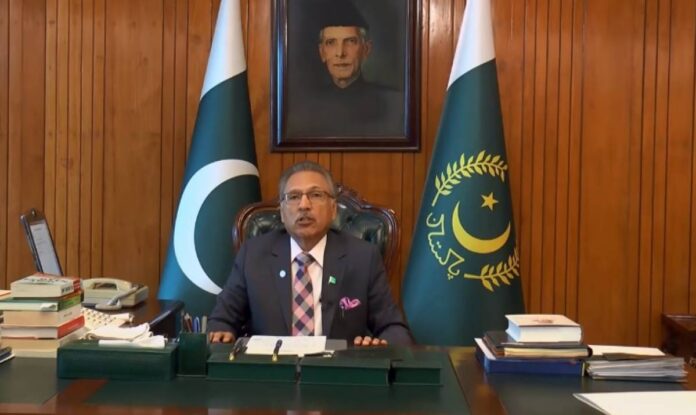ISLAMABAD: President Dr Arif Alvi has proposed establishing a trade triangle between Pakistan, China and Association of Southeast Asian Nations (ASEAN) to maximise the quantum of intra-regional business opportunities.
In his virtual address to the 17th China-ASEAN Expo held in China’s Nanning city on Friday, the president said that Pakistan’s stable macroeconomic policies and ease of doing business offered an attractive market to both China and the ASEAN countries for trade cooperation in diverse areas.
He maintained that despite the challenge of coronavirus pandemic, Pakistan’s economy strengthened and its online businesses grew due to implementation of far-reaching economic reforms.
“We encourage the ASEAN countries and the Chinese businessmen to invest in special economic zones as Pakistan’s macroeconomic policies have changed tremendously with an improved state of ease of doing business.”
On exports to ASEAN and China, he said textiles, food produce (meat and vegetables), surgical goods, minerals and information technology could be prospective areas.
Earlier in August, Foreign Minister Shah Mahmood Qureshi said Pakistan would continue to deepen and further strengthen political, economic and cultural ties with ASEAN and its member states in line with its ‘Vision East Asia’ policy.
In his message on the 53rd ASEAN Day, the foreign minister had said, “Pakistan enjoys close, friendly ties with all ASEAN members and its historic and deep-rooted relations pre-date the modem era, harkening back to abiding linkages forged during the time of the Gandhara Civilization.”
Qureshi had also commended the ASEAN states for handling the Covid-19 pandemic and called for enhanced cooperation and collaboration among the member states for betterment of humanity.




